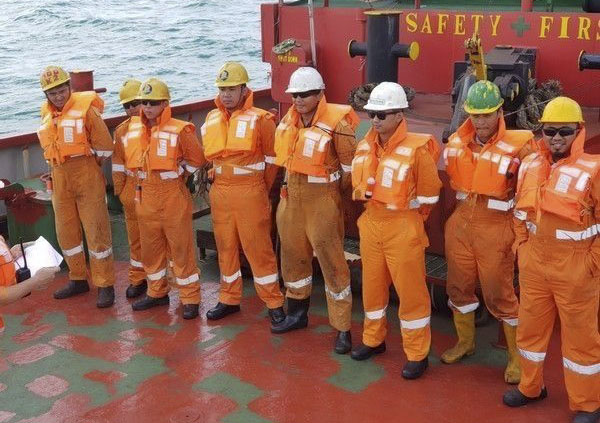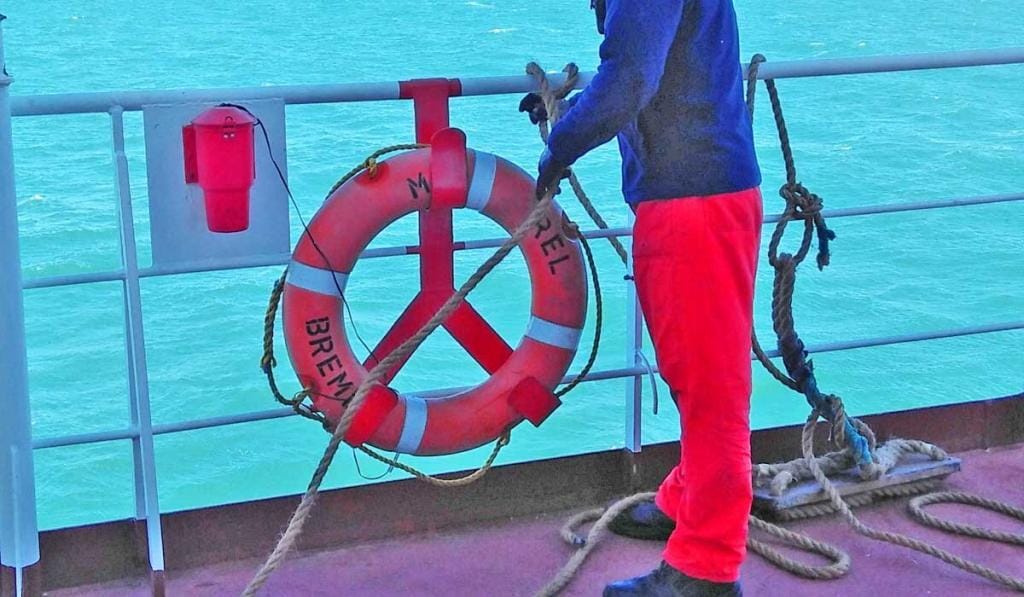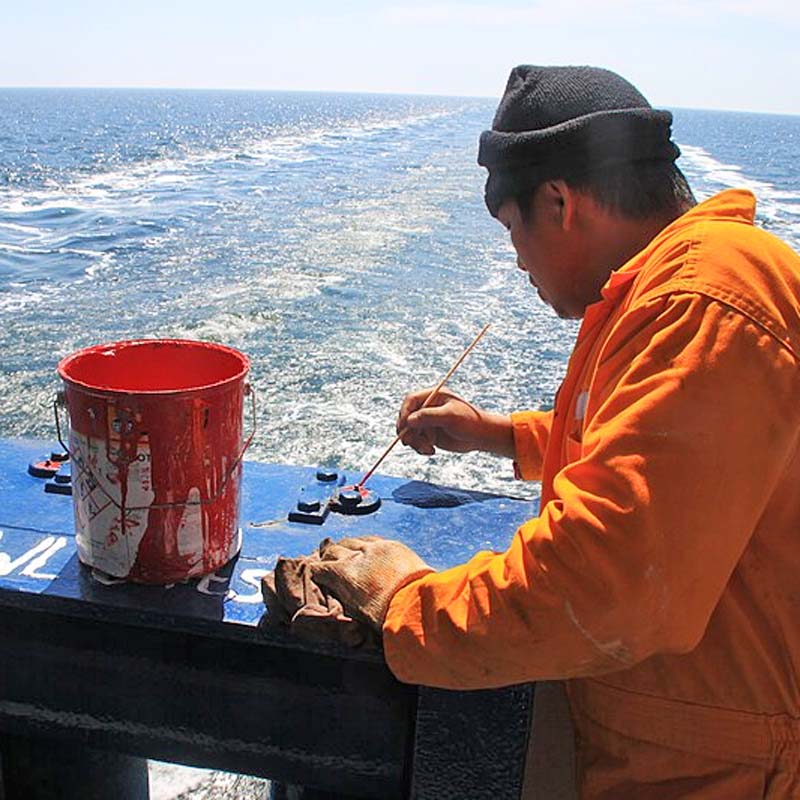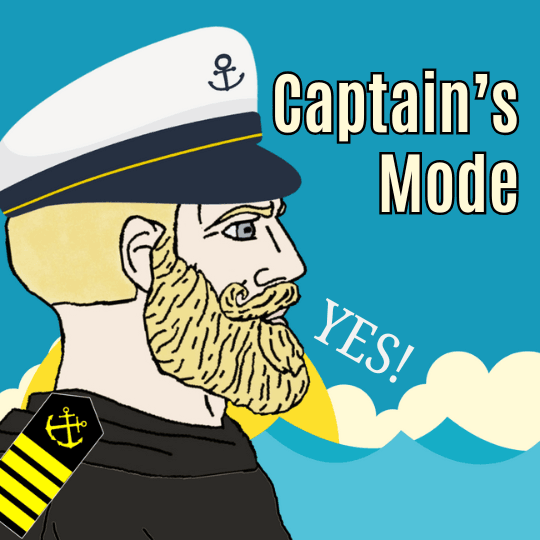In other words, what do the other crew members expect of you if you are a newly signed-on Ordinary Seaman (OS) on board?
You might find yourself wondering about your duties, how to fit in, and whether you’ll measure up to expectations.
It’s natural to feel a little uncertain, and thoughts of being compared to more experienced OS crew members can add to the pressure.
But don’t worry—this article is here to set your mind at ease.
We’ll break down exactly what the senior crew expects from you and how you can meet those expectations with confidence.
Understanding Your Job Description
Before panicking, it’s very important to familiarize yourself with your job description.
Assuming you already accomplished memorizing your duties in the muster list, knowing your key responsibilities will solve half your worries.
So here is the most common job description of an Ordinary Seaman (OS).
1. Maintain the cleanliness and general hygiene of the vessel.
2. Maintenance of mooring ropes, wires, cordage, riggings, and running gear in the direction of the Bosun.
3. Maintenance of steel and paintwork as required by the Bosun on open decks, ship’s sides, closed areas, posts, derricks, masts, davits, cranes, etc.
4. Maintain watches both at sea and in port, as directed.
5. Assist with mooring and unmooring the vessel as directed.
6. Assist with cargo operations (loading-discharging, ballasting-deballasting, COW, inerting, and cargo hose connection/disconnection as appropriate).
7. Participate in washing/cleaning residue removal of the cargo holds/tanks, ballast tanks, pump rooms, etc., as appropriate for each type of vessel.
8. Attend and check the mooring ropes, wires, and winches tension when alongside.
9. Assist the pump man in loading/discharging/ballasting operations, handling various valves on deck and in the pump room when directed (tankers).
10. Assist as directed in bunkering operations as per Oil Transfer Procedures.
11. Handle cargo/stores/garbage as directed.
12. Participate in all drills, exercises, and safety meetings.

What the Crew THINKS of You as a Newly Signed-On OS
1. You don’t know anything.
If you are new to the company, whether it’s your first time on board or not, they most likely don’t expect you to know the job on board.
Heck, some won’t even count on you to speak good English. But they do hope you can perform basic tasks.
You are at the bottom of the shipboard ranks, and that’s okay because it gives you time to adjust and familiarize yourself with the work routine.
2. You’re probably a bad person.
But they are secretly hoping you are a good one.
I mean, everyone on board hopes and prays that the newcomers won’t turn out to be a-holes, right?
3. They expect you to learn.
The crux of every first-time sailor is to learn the job safely and effectively. Yes, they have low expectations of you, but only in your first month or so.
You must show a willingness to learn and demonstrate your improvement over time to get a positive evaluation and probably promotion to the next rank.
What You Should Do as a Newly Signed-On OS
Now that we have an idea of what their initial impression of you is, it’s time to do your part and prove to them what you can do to earn their trust.
1. Be a good worker.
Follow instructions, be on time, and have a positive attitude. When you finish a job, look for Bosun (or Chief Mate) and ask for the next job.
2. Be eager to learn.
Show interest in learning your job and even those of the Able-bodied seafarers since many of your duties overlap.
Ask questions about the job and be ready to “copy” the skills they demonstrate, since you will surely do them again someday.
3. Practice knot tying.
Knot tying is one of the most important skills everyone should learn on board, especially for deck people.
During spare time or even on calm gangway watches, get a short rope and familiarize yourself with the basic knots like clove hitch, bowline, sheet bend, figure-of-eight knot, timber hitch, and many others with your eyes closed.

4. Know your emergency duties.
This is a must.
Knowing your emergency duties will help you calm down during emergencies, including Coast Guard and vetting inspections.
Participate in drills and exercises with interest and ask questions during debriefing and discussions.
5. Check the mooring ropes.
Practice checking the condition of the mooring lines with the supervision of an experienced AB first.
After you learn the ropes, volunteer to do it yourself, and don’t forget to inform the Cargo Control Room of your safety rounds.
6. Report near misses and potential hazards.
Almost got hit by a falling hammer? Report it to the Bosun. Saw an unsecured drum running on deck during bad weather? Tell the officers about it.
These are accidents waiting to happen, and we should bring the near misses to light so they can be presented next time.
7. Bring a pen and a notebook.
These come in handy for taking notes, observations, or new learnings that you can review later on in your cabin.
It also makes you look smarter.
What “NOT TO DO” On Board as a First-Time Ordinary Seaman
Now the “Not To Do” list.
You should avoid doing these things, as they get you into trouble with your job, or the people on board.
1. Avoid answering with “I Know” even if you know.
This usually gets on the nerves fast. Imagine the Bosun explaining to you about the job, and you cut him off halfway with a
“Yes, Bos, I know!”
He will most likely give you the job without going into the details, and come back to you after a few minutes telling how badly you messed up.
Why?
“Because you said you know, but you don’t know!!”

2. Hide after finishing your task.
If you think you’re safe hiding under the manifold, think again. Your “ninja moves” will soon be discovered, and your fellow crewmates, including the officers, will trust you less.
They may also mess up your evaluation and promotion someday.
3. Don’t be a hero.
If the ABs and the Bosun refuse to do it because of the risk, neither should you!
Prioritize your safety first because they won’t give you extra cash for being a hero. But they may give you extra work.
Conclusion
As a newly signed-on Ordinary Seaman (OS), your first time on board is a crucial period for learning, adapting, and proving yourself to the crew.
Continue improving yourself and set a goal that by the end of your contract, you should be able to do the jobs of the Able-Bodied seafarers.
May the winds be in your favor.


Leave a Reply